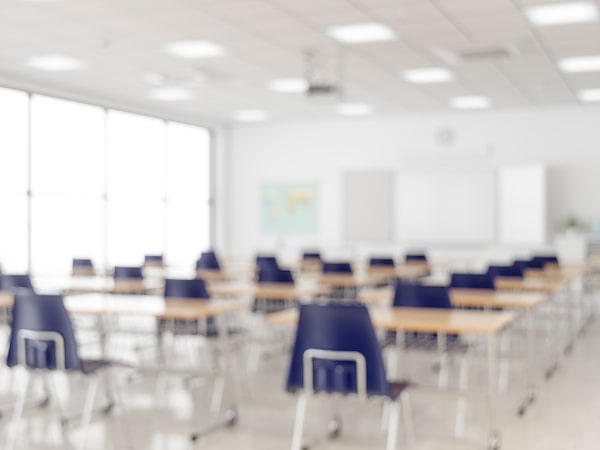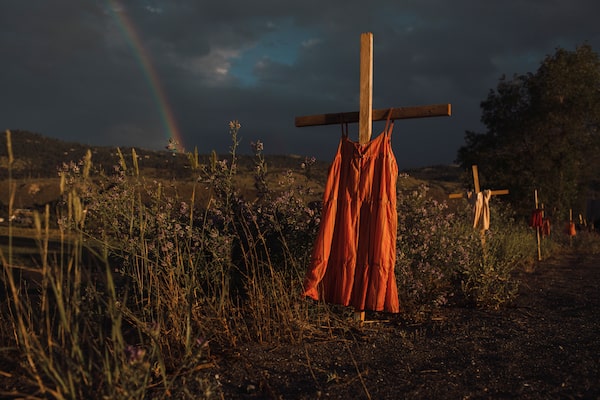Good evening, let’s start with today’s top stories:
World leaders have agreed to send more military equipment to Ukraine and swell NATO ranks along Europe’s eastern flank, as Western allies continue to increase the pressure on Moscow.
Members of NATO agreed to the measures on Thursday at an emergency meeting under heavy security in Brussels – part of an unprecedented triple summit of the Western military alliance, the G7 and the European Union. Pledging to present a united front in the face of Russia’s aggression in Ukraine, NATO called on Russia to implement an immediate ceasefire.
In his virtual address to NATO, Ukrainian President Volodymyr Zelensky stopped short of issuing his usual request for a no-fly zone. But he hit out at the military alliance for not doing more to help his country defend itself against the Russians and appealed for “unlimited military support.”
“You have at least 20,000 tanks. Ukraine asks for 1 per cent, 1 per cent of all your tanks. Please give them to us or sell them to us. But we, so far, have not heard a clear response. We just want to save our people, to survive, just to survive,” Zelensky said.
Read more Russia-Ukraine coverage:
- Russia-Ukraine live updates
- Canada pressed to take on extra NATO defence role in Baltics
- Taiwan predicts China will think twice about military invasion after watching Ukraine

A group of soldiers with the U.S. Army's 87th Division Sustainment Support Battalion board a chartered plane during their deployment in support of NATO to Europe, on March 11, at Hunter Army Airfield in Savannah, Ga.Stephen B. Morton/The Associated Press
This is the daily Evening Update newsletter. If you’re reading this on the web, or it was sent to you as a forward, you can sign up for Evening Update and more than 20 more Globe newsletters here. If you like what you see, please share it with your friends.
National security threat in relation to trucker convoy blockades identified in early February, OPP says
A national security threat was identified by Ontario’s intelligence bureau on or around Feb. 7 in relation to convoy blockades, Ontario Provincial Police Commissioner Thomas Carrique told a parliamentary committee on Thursday.
A week after the security threat was identified, Prime Minister Justin Trudeau announced the invocation of the federal Emergencies Act on Feb. 14 – legislation never before used in Canada. On Feb. 28, Trudeau announced the federal government would end the use of the act because it had been assured police had sufficient tools to deal with any further challenges.
Trudeau’s announcement to end the use of the act took place two days after the House of Commons voted 185 to 151 to authorize the emergency measures. NDP and Liberal MPs voted in favour of using the act, while Conservatives and the Bloc Québécois voted against.
The Liberal government’s decision to use the act is now the subject of scrutiny by parliamentarians. A special committee is examining the issue and will hear from witnesses about the matter. Separately, an inquiry will be held though details have not been released about who will undertake this work.
Police begin to move in and make arrests at the trucker protest in Ottawa, Canada, Feb. 18, 2022.Brett Gundlock/The New York Times News Service
Black children placed in special language support program in Ottawa schools without parents’ knowledge
The children of more than 30 Black families in Ottawa were placed in a language proficiency support program without their parents’ consent, advocates say.
The families only learned two months into the academic year that the Conseil des écoles publiques de l’Est de l’Ontario, a French public school board in Ottawa, had placed their elementary school-age children in the program, Actualisation linguistique en français, which is meant to develop language skills so students can follow the regular curriculum.
Charline Grant, the chief advocacy officer at Parents of Black Children, said the families received a note about their children’s enrolment attached to their progress report cards.
Some parents, she said, discovered that their children had been in the program for years, and they believe it uses a watered-down curriculum for French-language classes.
“Every call we got is they didn’t know and they found out in the progress report, which is the upsetting part about it,” said Grant, whose organization is one of several advocating for the families and has met with the board. “Without saying the words, you are telling them you don’t think they’re capable of making a decision for their children.”

onurdongel/iStockPhoto / Getty Images
ALSO ON OUR RADAR
Canada’s men’s soccer team could clinch a spot in the World Cup tonight: If the Canadians win the match against Costa Rica tonight, they will automatically secure their spot for the World Cup in Qatar this year. The only time the team has qualified was for the 1986 World Cup.
Canada and Britain beginning negotiations on free-trade agreement: Canada and Britain are beginning negotiations on a free-trade agreement as the British government seeks preferential access to foreign markets after its exit from the European Union.
Institutional investors allocate more money to private equity amid volatility in public markets: Institutional investors plan to keep putting capital into private equity, despite rising prices for new acquisitions, to beat the returns from public markets facing significant headwinds from inflation and the Ukraine war, according to a study by law firm Torys LLP.
The 2022 Academy Awards are shaping up to be the weirdest Oscars ever, Barry Hertz writes: Thanks to poorly promoted nominees, surprise snubs, and start-and-stop theatre reopenings, this Sunday’s Academy Awards are expected to be wonky. Yet, Hollywood’s biggest night is still bound to be a worthy spectacle. Here’s our complete guide to the 94th annual Academy Awards.
The CRTC approved Rogers’ takeover of Shaw’s broadcasting services today: The telecom deal came with some conditions attached, including that Rogers must pay $27.2-million in tangible benefits, with 80 per cent going toward the Canada Media Fund and other specified funds.
MARKET WATCH
U.S. stocks ended sharply higher on Thursday, extending the market’s recent rebound, as investors snapped up beaten-down chipmakers and big growth names and as oil prices dropped. The TSX closed nearly unchanged, with real estate stocks seeing a pullback of more than 1%.
The Philadelphia SE semiconductor index, which is down sharply for the year, jumped on the day, while Apple shares rose for an eighth consecutive day after getting hammered earlier this month.
Nvidia Corp and Intel Corp climbed and helped to boost the S&P 500 and the Nasdaq.
Indexes in recent sessions have recovered from their lows. The Nasdaq earlier this month closed down more than 20% from its Nov. 19 record closing high and confirmed it was in a bear market.
According to preliminary data, the S&P 500 gained 63.94 points, or 1.43%, to end at 4,520.18 points, while the Nasdaq Composite gained 270.44 points, or 1.94%, to 14,193.05. The Dow Jones Industrial Average rose 344.96 points, or 1.00%, to 34,703.46. Discount retailer Ollie’s Bargain Outlet Holdings Inc shares rose after an upbeat outlook.
Got a news tip that you’d like us to look into? E-mail us at tips@globeandmail.com. Need to share documents securely? Reach out via SecureDrop.
TALKING POINTS
What the federal Liberals and NDP can learn from B.C.’s 2017 confidence-and-supply deal
“Perhaps the most important outcome of Tuesday’s agreement is that the influence of politically appointed, unelected backroom partisan staffers will be greatly diminished. There will now be stakeholders at the decision-making table from another political party. One can hope this will mean less partisan bickering between the federal Liberals and the federal NDP, and a greater focus on shared governance.” – Andrew Weaver
Tech is enabling autocrats. Here’s how to fight back
“Not long ago, most of us believed that technology would enhance personal freedom and democratic choice. For a while, it looked to be true. But technology is starting to shift the global balance toward autocratic regimes, and turbocharging systemic competition between democracies and autocracies.” – James Appathurai
Africa is becoming the new front line in the conflict between Russia and the West
“Of the 35 countries which abstained from the recent United Nations vote condemning Russia, roughly half were in Africa. It’s not that many African countries openly support Russia’s war on Ukraine. It’s rather that few see much to gain from taking sides in a conflict on a distant continent.” – John Rapley
Jagmeet Singh puts on a rare display of integrity in politics
“Could it be that [Jagmeet Singh] really meant it when he said the most important thing for his party, its raison d’être, was getting “help to people” and that this deal with Mr. Trudeau advanced that objective? In a time of mind-numbing, reflexive hyperpartisanship that creates distrust and disgust toward politicians, and that has turned American politics into a cesspool, what a refreshing and ennobling change that would be.” – Lawrence Martin
LIVING BETTER
New Liberal-NDP dental plan could benefit millions. But what will it cover and when?

The Liberals and NDP have pledged to roll out a countrywide income-based dental-care program that could benefit Canadian families.LEON NEAL/Getty Images
A proposed new federal dental program has the potential to boost oral health for low-income Canadians, who often don’t see a dentist because of the costs, and result in significant savings for eligible families who pay out of pocket for dental services.
The recently announced Liberal and NDP pledge to roll out a countrywide income-based dental-care program could benefit many families in a country where almost a third of the population, or 12 million people, didn’t have dental insurance in 2020.
But the federal government’s timeline for implementing the plan is “ambitious,” two researchers told The Globe and Mail. And which services would be covered under the new dental subsidies remains an unanswered question, they added.
Prime Minister Justin Trudeau announced his government’s intention to prioritize the launch of the dental-care program as part of a deal between the Liberal Party and NDP. Erica Alini reports on how much the program will cover and when.
TODAY’S LONG READ
Winners of the World Press Photo Contest were chosen from more than 65,000 photographs. The Globe’s Clare Vander Meersch offers an insider’s take on the winning entries

Amber Bracken's picture of makeshift memorials to residential-school survivors near Kamloops, B.C., is one of the regional winners of the World Press Photo Foundation's annual contest.Amber Bracken/Handout
Clare Vander Meersch is a Globe and Mail photo editor and the World Press jury chair of North and Central America. Here, she offers an insider’s take on the winning photographs in the region she was judging.
Evening Update is written by Emerald Bensadoun. If you’d like to receive this newsletter by e-mail every weekday evening, go here to sign up. If you have any feedback, send us a note.